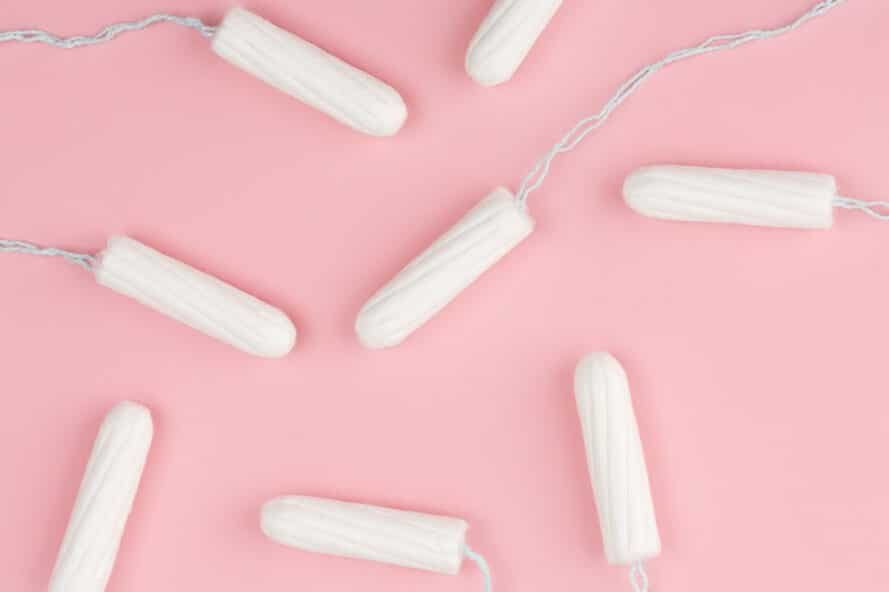With more than 500 million women and girls across the world lacking access to the facilities they need to manage their periods, taking action to achieve menstrual equity is vitally important. Today we compare period dignity research in the United Kingdom vs North America and identify ways that we can work together to tackle period poverty.
Table of Contents
What is period poverty?
Period poverty is the lack of access to sanitary products, education, hygiene facilities or waste management due to things like financial constraints, job instability, geographical area, and access to resource. Not only can this lack of resources have a detrimental effect to health, but it can also be mentally debilitating, with one survey revealing that 68.1% of American university students experiencing period poverty had moderate to severe depression.
A period shouldn’t hold you back.
North America vs UK research
Citron Hygiene recently surveyed more than 3000 women to answer one important question: Is there a need for higher standards for menstrual hygiene practices in public bathrooms? Here’s what we learned:
Should all businesses offer free period products?
Globally, tackling period poverty is a large and complex task, which no business alone will be able to completely eradicate. However, every business can play their part.
A great way of doing this is through offering free menstrual products to your washroom visitors, helping to create a safe, hygienic, and caring space for your employees and visitors to manage menstruation.
We asked women in North America whether they believe tampons and pads should be offered for free in public spaces, and here are the results: 89% of people surveyed agreed that period products should be offered for free in healthcare and school bathrooms, whilst 75% believed that period products should be offered for free EVERYWHERE, to all menstruators. With more than 2250 respondents in North America highlighting the need for free, accessible menstrual management products, we asked our UK audience to share their thoughts. We surveyed nearly 2000 adults in the UK and found that 64% said it was important for businesses to supply free period products, whilst a greater 71% thought it was important that businesses should, as a minimum, be supplying free period products to employees.
Whilst survey results clearly indicate the demand for free period products, the results also highlight that period products be made accessible to high-traffic, environments such as schools, doctors’ surgeries, and hospitals. As staff turnover in these industries can be high, providing free period products could help to support staff wellbeing and increase retention. It also provides a reliable source of emergency menstrual products for students and patients, lowering anxiety and providing them a greater sense of well-being.
The impact of period product accessibility on customer expenditure
Beyond retaining your staff, free period products could also improve company turnover. There’s a clear correlation between period dignity, and the amount of money that is spent within a business. In North America, our study revealed that 66% of respondents would prefer to spend money at a business that provided free period products over one that did not. Over in the UK, we asked a similar question, and results showed that an even greater 71% of women would be more likely to spend money in a business that provided the facilities needed to manage a period.
This research highlights that no matter where you are located, when businesses help to ease menstruators’ anxiety by making period products accessible to their washroom users, this creates a lasting impression, and one that can have a significant impact on revenue.
The impact of touch-free disposal units
As more research comes into light, it’s clear that flushing pads and tampons down the toilet can cause havoc for your business and lead to expensive plumbing issues. So, how can your business encourage menstruators to dispose of their sanitary products correctly?
After research showed that an estimated 2 billion menstrual items get flushed down the toilet in the UK every year, we asked our North American audience about their disposal habits. Our survey showed that 30% of women would rather flush their pads and tampons than come into contact with an unsanitary or overflowing wall-mounted metal waste box – something that is more common in North America than in the UK. Instead, 70% of respondents agreed that touch-free disposal units are the superior disposal option and when a touch-free disposal unit is offered in a stall, the likelihood of flushing these products decreases to 13% for pads and 26% for tampons. This highlights the worthy investment of upgrading to a touch-free system, rather than facing expensive plumbing fixes and shows your washroom visitors that you care.
Tackling period poverty globally
As our research clearly demonstrates, no matter where menstruators are located, globally there’s a need for businesses to take a step towards addressing period poverty and creating more Period Dignity Washrooms.
We’ve partnered with Aunt Flow to supply businesses with free-vend sanitary and tampon vending machines for their guests, employees and customers. These innovative dispensers provide a discreet and dignified way for individuals to access free menstrual products, without having to compromise on comfort, hygiene, or dignity.
Get in touch today to learn more about how you can provide a caring away-from-home washroom experience that supports period dignity. Alternatively, learn more about uncomfortable period dramas that may be taking place within your establishment, and how you can minimise them.
